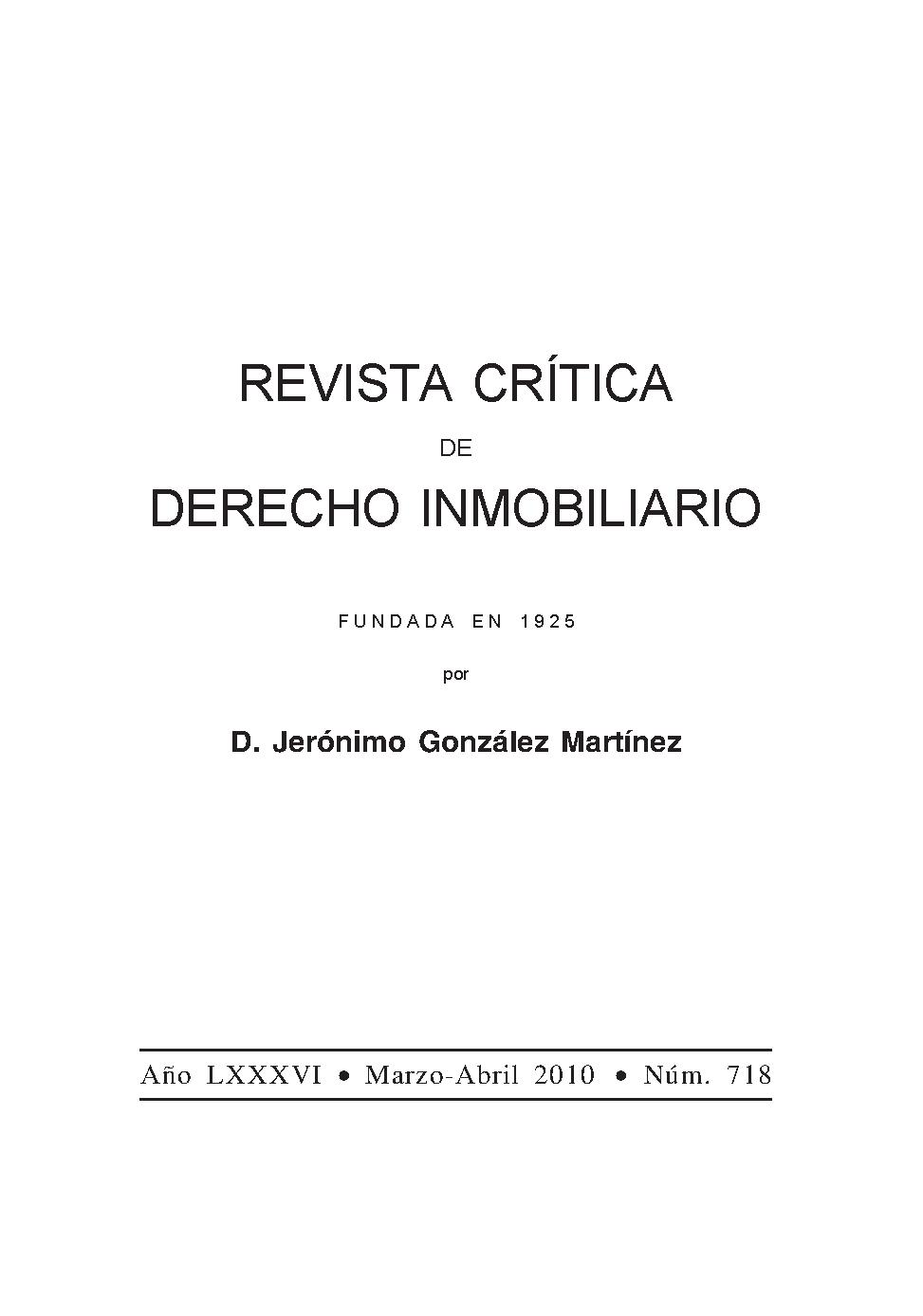EL DERECHO TURCO. UNA APROXIMACIÓN AL SISTEMA REGISTRAL TURCO A PROPÓSITO DE LA SENTENCIA DEL TRIBUNAL EUROPEO DE DERECHOS HUMANOS DE ESTRASBURGO DE FECHA 13 DE NOVIEMBRE DE 2008 (DEFINITIVA 4 DE MAYO DE 2009).
Keywords:
TURKEY, PROPERTY REGISTRATION AND THE CADASTREAbstract
The new circumstances arising from the current economic crisis as pertains to real estate have caused no few investors to seek new financial havens where they can invest their savings. One of these havens has been and is Turkey, the eternal candidate to accession to the EU and a great recipient of real estate investments from the USA and many European countries. Turkey is a country with possessions in Europe and Asia, with more than 800,000 square kilometres and a population of over 70,000,000 inhabitants. That is the reason for the study's interest in the Turkish property registration system, for we all know that the first condition for investing in real property is that the investee country must have a legal system that provides certainty in matters of real property. This legal paper has the object of acquainting the reader more closely with the Turkish registration system. As the methodological resource for doing so, the author has chosen to analyse the judgment of the European Court of Human Rights in Strasbourg of 4 May 2009, on a case whose factual basis was real property and whose substantive base was the property registration law of Turkey. The article is divided into two welldifferentiated parts: the first part, where Turkish law proper is studied, and a second part, where the judgment of the European Court of Human Rights is the subject of special analysis. The first part addresses, more specifically: an introduction to historical Turkish law; the current procedure for transferring ownership; the organic structure of the property registration system and the cadastre and the principles underlying the registration system of Turkey. In the second part, Turkish law is applied to the decision given by the European Court of Human Rights in Strasbourg in its judgment of 4 May 2009. Lastly, the author gives a criticism of Turkish registration law based on the comparative law of Western property systems, especially European property systems, which are the parent to the Turkish system. It must be observed that there is yet very little literature in the Spanish language about Turkish registration law, and such literature is even scarce in the languages generally drawn upon by the persons who study the laws of the countries near us.









